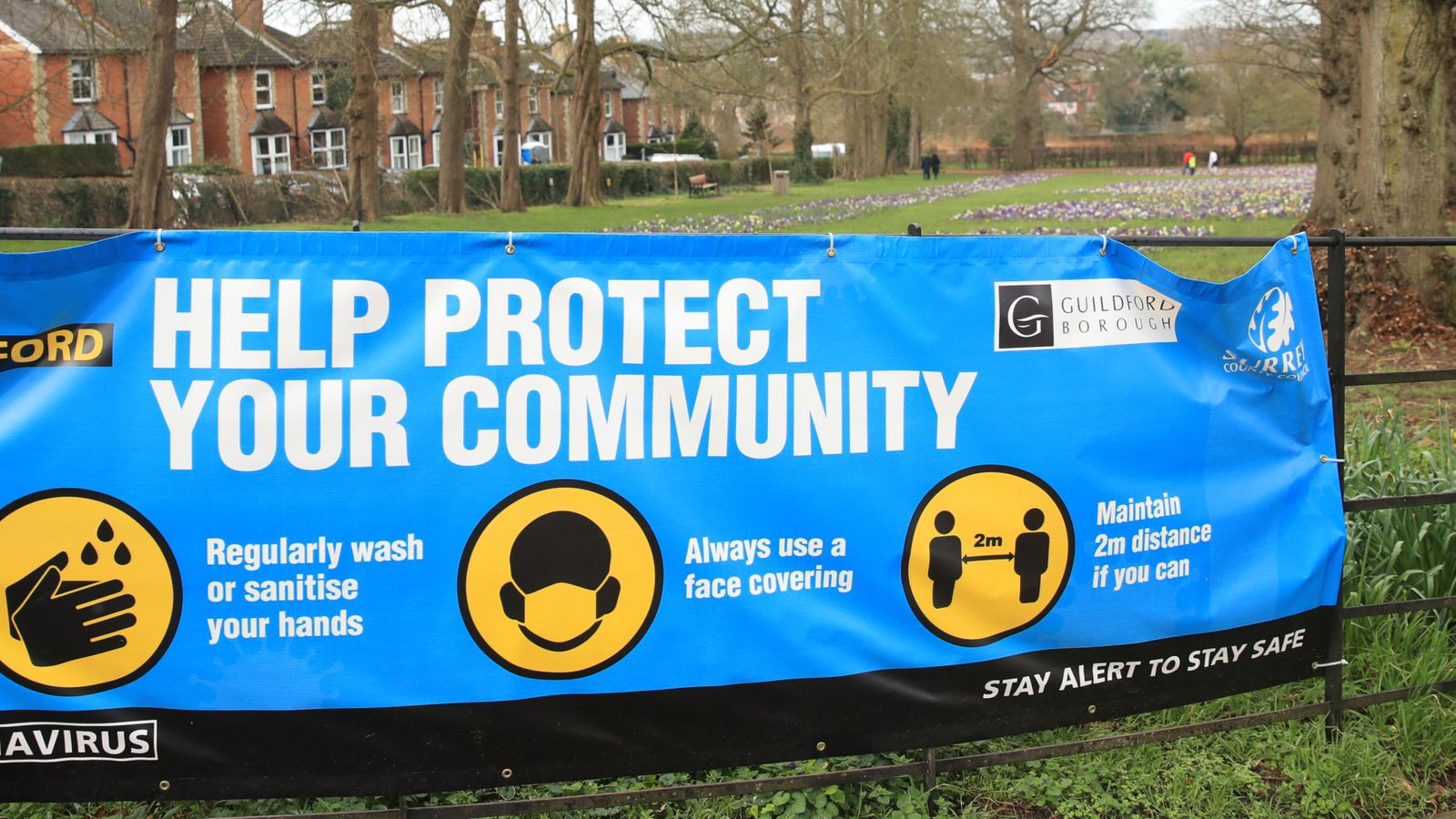The rate of new COVID-19 cases in every region of England is continuing to fall, according to Public Health England.
The region with the highest rate was Yorkshire and Humber where there were 97.6 new coronavirus infections per 100,000 people in the week to 7 March.
This was down from 115.6 in the previous seven days, said PHE.
The next highest was the East Midlands with 84 cases per 100,000, down from 122.9.
Our weekly #COVID19 surveillance report also shows that case rates have fallen in all regions and are now highest in Yorkshire & The Humber.
Have a look at the data here: https://t.co/8dYt9zEVk9 pic.twitter.com/pZMfxIvUrg
Live coronavirus updates from the UK and around the world
The region with the lowest rate was the South West where there were 32.3 COVID cases per 100,000, compared with 43.9 a week earlier.
PHE also said case rates in England are continuing to drop among all age groups.
The highest rate is among 30 to 39-year-olds, which stood at 88.9 cases per 100,000 people in the seven days to 7 March, down week-on-week from 123.6.
Among 20 to 29-year-olds, the rate fell from 113.9 to 78.9, and for 40 to 49-year-olds it was down from 103.7 to 72.7.
For people aged 80 and over, the rate fell from 66.6 to 44.2.
Meanwhile, the latest hospitalisation rate for COVID-19 is 5.95 per 100,000 compared with 8.33 in the previous week.
Hospital admission rates for #COVID19 have fallen in all regions and continue to be highest in the West Midlands.
Read our weekly surveillance report here: https://t.co/8dYt9zEVk9 pic.twitter.com/27ObJk58hU
The West Midlands had the highest hospital admission rate for COVID-19, and by age group, the highest rate was in the over-85s.
But hospitalisations and deaths are now falling more rapidly in the oldest age cohorts, including the over-70s and over-80s, which is likely to reflect the impact of the vaccination programme, said PHE.
PHE medical director Yvonne Doyle said in a message to the public: “We’re seeing the impact of staying at home, following the current guidance and the lifesaving vaccines. When you are offered a vaccine make sure you take it
“The last thing we want now is for rates, deaths and hospitalisations to go back up. We are still in a precarious situation and it would not take much for a dangerous new wave to take off. So even if you have had the vaccine, keep contact to a minimum, keep your distance and keep washing your hands regularly and thoroughly.”
A total of 20,526,312 COVID-19 vaccinations took place in England up to10 March, according to provisional NHS England data, including first and second doses, which is a rise of 277,680 on the previous day’s figures.
An estimated 88.9% of people aged 60 and over in England have received their first dose up to 7 March, new figures suggest.
Regional estimates range from 81.7% for London to 91.2% for the Midlands.
Also, four new cases of the Manaus Brazilian P1 variant of coronavirus have been identified in England.
Three of the new cases have been found in South Gloucestershire and are said to be close or household contacts with the two cases previously discovered in the area.
The other case was found in Bradford, West Yorkshire, after the person tested positive late last month having travelled back from Brazil via Paris on 14 February.
It brings the total number of P1 variant cases in the UK to 10. Seven are in England and three in Scotland, all of which have links to travel or to a previously confirmed case that has travelled to Brazil.
PHE also said a new variant identified in the UK has been designated a Variant Under Investigation (VUI).
VUI-202103/01 (lineage B.1.324.1) was designated a VUI on 4 March after two cases were found in the South East of England in individuals who had recently travelled to Antigua.






















